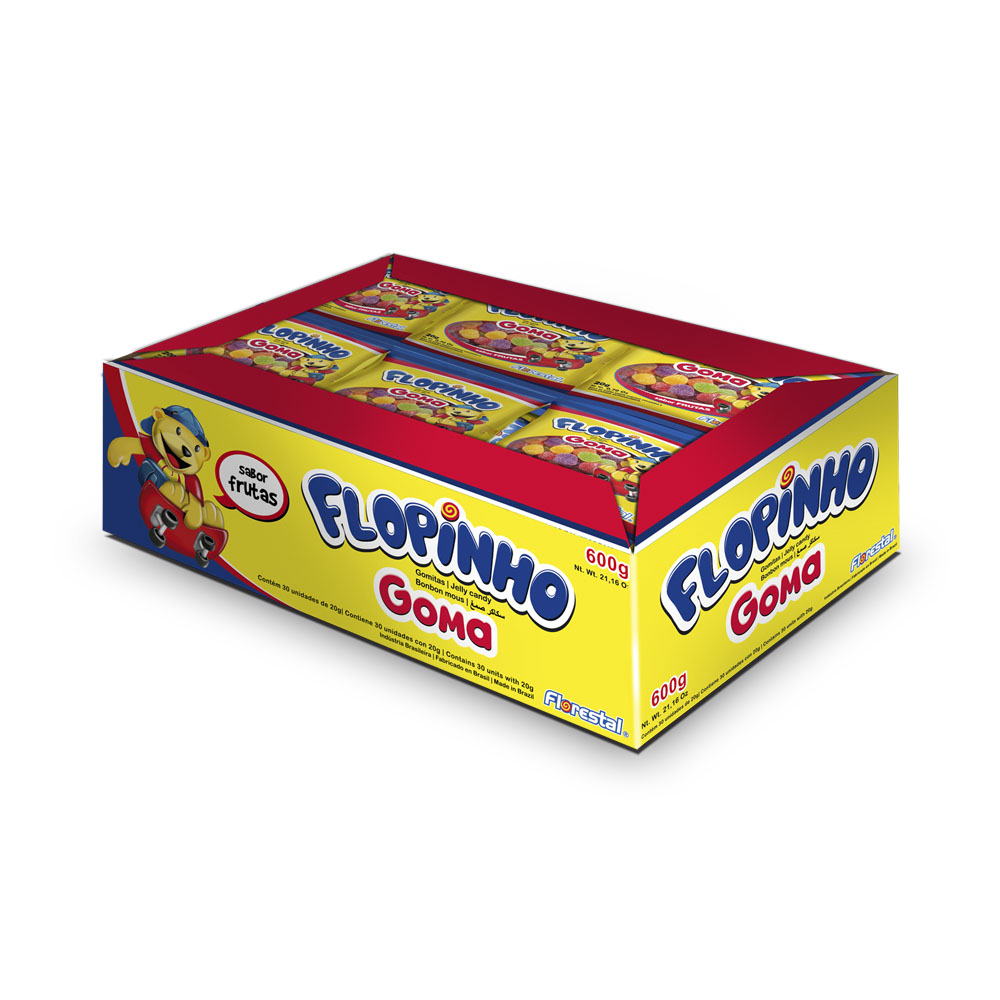Brazilian candy makers seek sweet results from halal certification
(Photo: Florestal Alimentos confectionery are all halal)
|
Brazilian confectionery sector |
|
| Estimated market size |
$12.7 billion |
| Annual exports |
$335.8 million |
| Share of total exports to Islamic markets |
2 percent |
SECTOR OVERVIEW
With its high-quality local supply of essential raw materials such as sugar, cocoa and nuts, Brazil is the world’s third-largest producer of candies and chocolates, trailing only the United States and Germany. But the recent global economic crisis saw exports drop to major trading partners like Argentina, causing Brazilian confectioners to expand their horizons to the other side of the globe.
“During the global crisis, Brazilian industries started to look for new markets for their products and found in the Middle East the perfect environment to build a new commercial partnership,” says Romualdo Silva, a spokesman for the Brazilian Association of Chocolate, Cocoa, Peanut, Candy and Derivatives (ABICAB), a trade group representing some 50 export companies under the “Sweet Brasil” label. “Since then, Brazilian companies have been seeing a great growth potential in the Middle East.”
OPPORTUNITIES BEING ADDRESSED
Trade fairs in the Gulf region have offered an important opportunity for Brazilian companies to connect with potential consumers in the Middle East, where the confectionery market is worth an estimated $6.3 billion.
Candymaker Florestal Alimentos decided to seek halal certification for its products after attending Gulfood 2013 in Dubai, according to company trader Cleber Joner Harth. “Getting the halal certificate was important for us to gain customers’ confidence in our products and increase our sales in Islamic markets,” he says.
“Today, 100 percent of our products are halal, and we export approximately 30 percent of our production to Islamic markets,” says Harth, emphasizing the importance of understanding the local culture and establishing local partnerships while promoting Brazil’s quality ingredients and distinctive tastes. He adds that his company’s top-selling product in Islamic markets is its Brazilian-coffee-flavoured hard candy.
“Most Brazilian candy companies that supply the Middle East market now have halal certification [for at least some of their products],” says ABICAB’s Silva, adding that at least 15 of his group’s firms are now exporting to Islamic markets. The trade group has been supporting this effort by launching an Arabic version of its website, adding Arabic-language translations on packaging, and boosting its presence at industry events in the Arab world.
Overall, ABICAB members only send around 2 percent of their total exports to Islamic markets, according to Silva, but some are making much bigger strides. Brazilian candymakers Docile Alimentos and Peccin Alimentos each send around 20 percent of their exports to the Arab world. For Peccin, that figure has doubled since the company got all of its product lines halal-certified.
CHALLENGES FACED
Florestal faced “no big obstacles” in getting its products halal-certified largely because its candies contain no animal products, according to Harth. Making other types of candy halal requires eliminating alcohol from the manufacturing process and using gelatine from cows rather than pigs. “The biggest challenge in getting the halal certification is to have complete control over the supply chain because all raw materials must follow halal rules as well,” says Silva. “Our companies are now much more aware of what the Islamic market demands.”
Further growth in the Middle East and other Islamic markets would be facilitated by commercial agreements between Brazil and countries in these regions, according to Silva: “Such agreements would reduce import duties so our products can be more competitive on price.” He added that logistical improvements such as additional options for shipping routes and ports are also needed for continued growth.
| KEY TAKEAWAYS |
The Middle East offers promising opportunities for confectioners when other markets are slumping. |
|
Trade fairs are a strategic way to gain access to Middle East markets. |
|
|
Attaining halal certification is important in gaining customer trust and increasing sales in Islamic markets. |
|
|
Reducing import duties is essential to keep the price of foreign goods competitive. |
© Copyright SalaamGateway.com 2015
